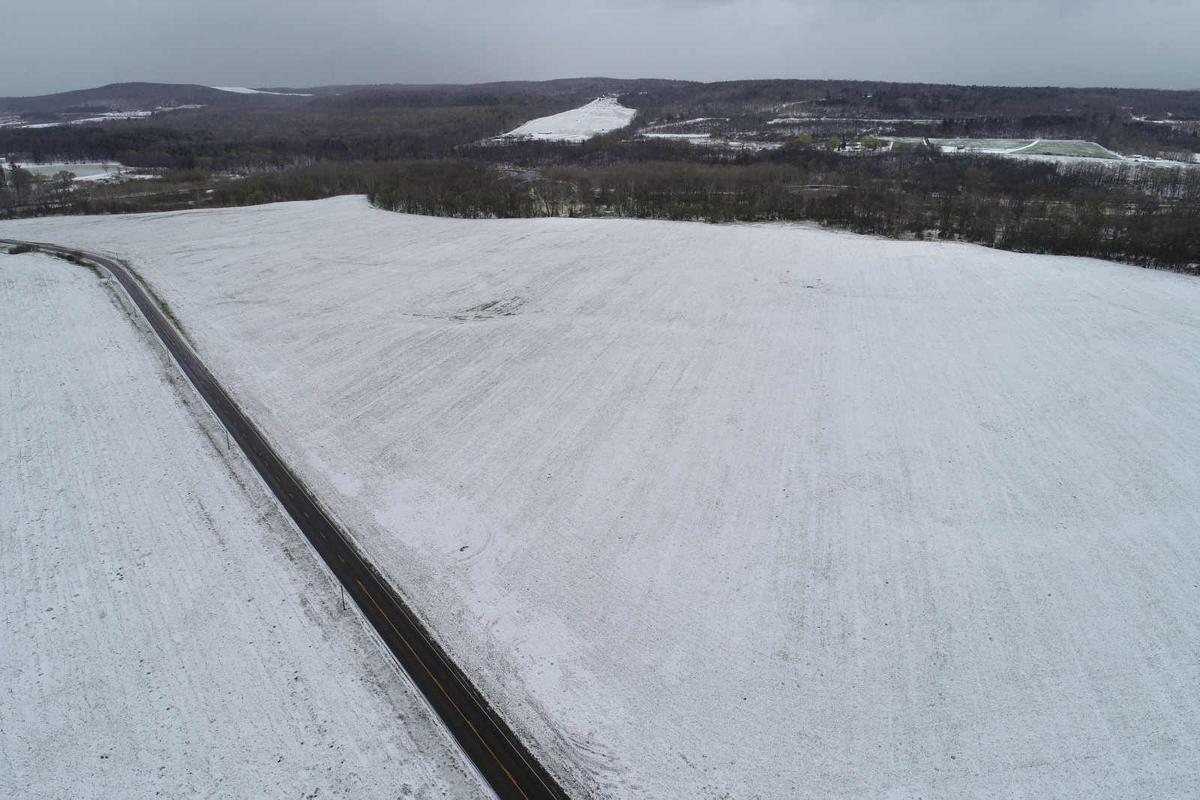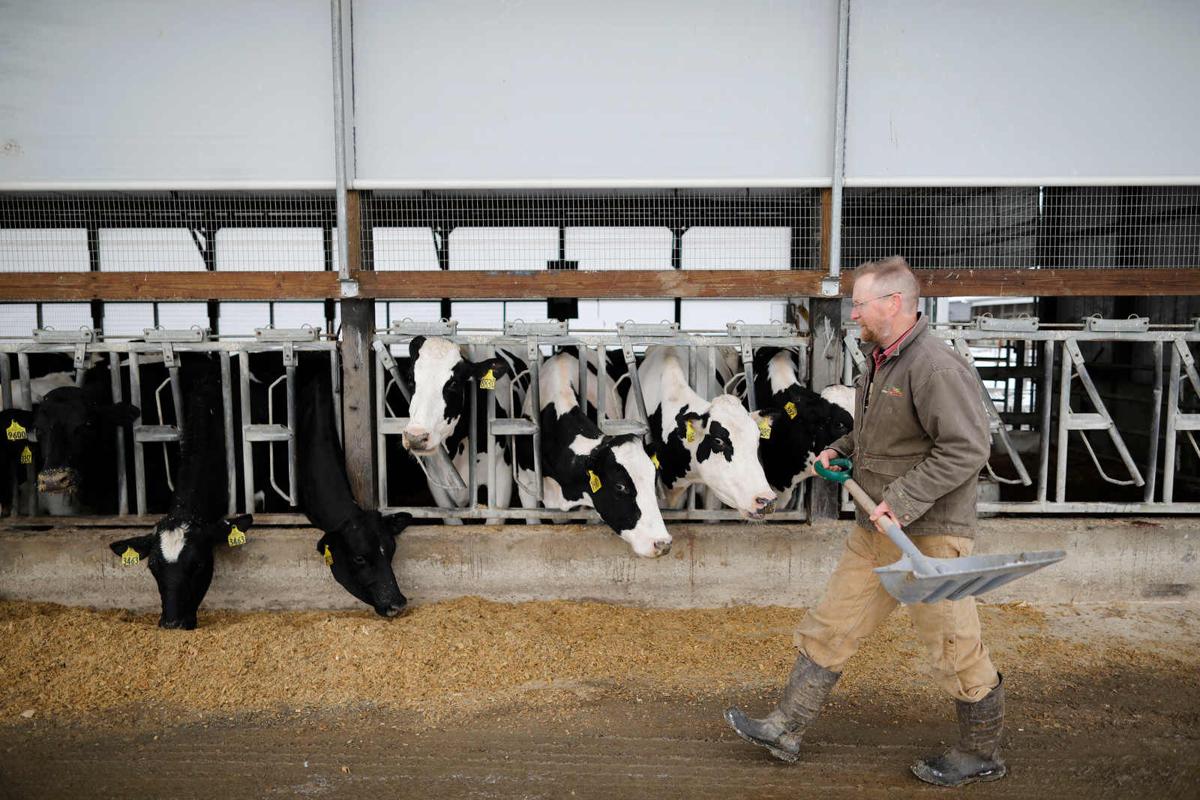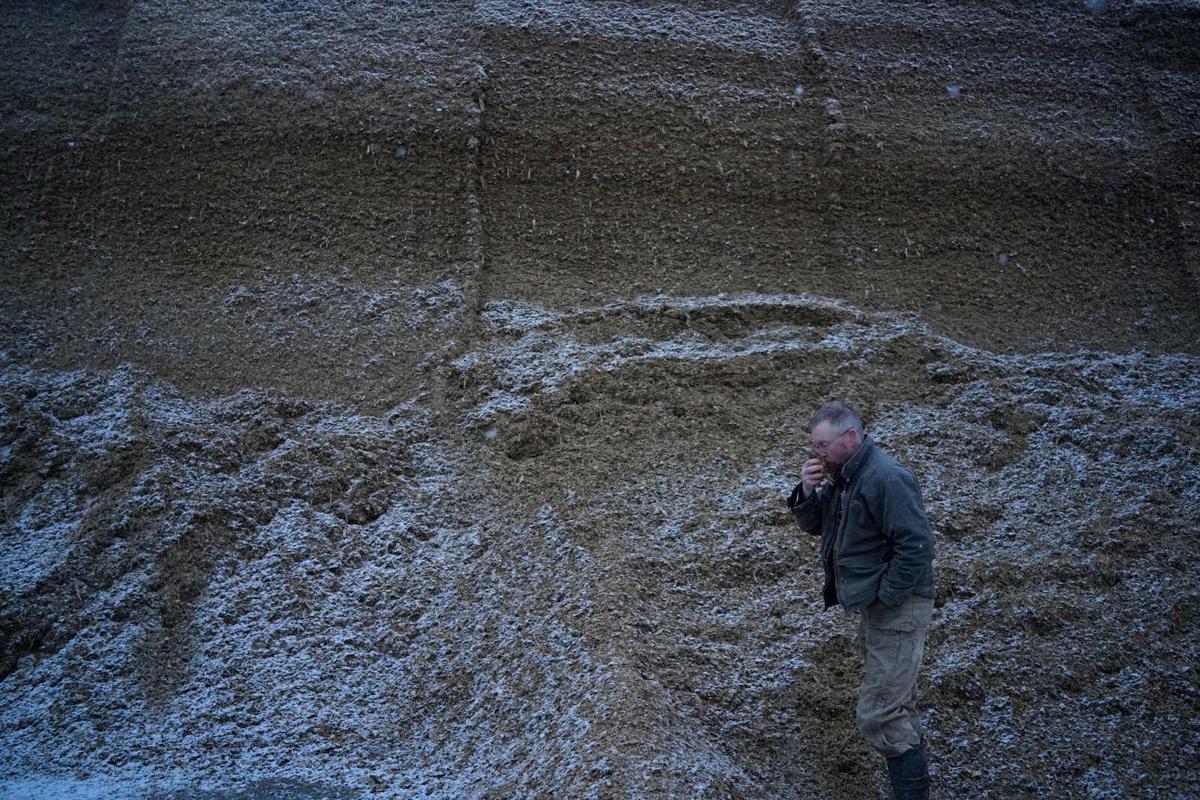BELVIDERE – When Charlie Bares looks out across hundreds of acres of rich soil in this Allegany County hamlet, he sees the alfalfa and corn grown here to feed the cows at his dairy farm 20 miles away.
But he’s not the only one with his eye on this even swath of cropland running along the Genesee River.
Great Lakes Cheese, an Ohio-based company with billions of dollars in annual sales, sees something else: the future site of a cheese manufacturing and distribution center big enough to fit two Walmart supercenters with room to spare.
The company would shut down its Empire Cheese factory in Cuba and spend $505 million to construct, equip and extend utilities to the new complex straddling the towns of Amity and Angelica.
Boosters say the potential investment, described as one of the largest in the county’s history, would offset the ongoing loss of good-paying manufacturing jobs here and prop up an area racked by poverty.

Great Lakes said it would nearly double its workforce at the new plant and buy up twice as much milk as before from local dairy farmers. But if it doesn’t get its way, officials said, the company has threatened to pack up and leave within five years.
That’s why the Allegany County Industrial Development Agency approved a hefty package of tax incentives, worth $200 million over 20 years, to underpin the project.
And the agency is moving to take control of 229 acres of Bares’ land through eminent domain, arguing the financial benefits of the proposal serve the community interest.
“The public benefit of the project is overwhelming,” the IDA said in a statement.
It’s a dramatic standoff that pits county leaders, economic development officials and large dairy cooperatives against residents in Cuba – where cheese-making would end and property tax payments would shrivel up – and Bares.
He’s tried to rally opposition to the plans but said he realizes his odds of stopping the project are long.
“I think helping out a billion-dollar company is not public benefit,” Bares said on a wintry morning while standing along the Belvidere site. “I think taking away the best farmland in Allegany County is very short-sighted.”
Cheese-making giant
Great Lakes Cheese packages and distributes to retailers and food-service operations the cheese produced at its own plants as well as cheese imported from around the world.
The company is based in Hiram, Ohio, and has 3,000 workers and annual revenue of $3.3 billion, according to Forbes. It’s one of the largest privately controlled companies in the country.
Cuba’s Empire Cheese plant traces its roots to 1871 and was sold to Great Lakes Cheese in 1993.The plant makes provolone and mozzarella, and medals earned at cheese competitions line the walls of the visitor waiting area.
Great Lakes Cheese has expanded the Cuba plant and its workforce, which numbered 125 in 1993 and stands at 229 today.
But, the company says, the plant requires significant upgrades and there isn’t room to build a new factory or expand the existing structure again.
“The building is at the end of its life,” Matt Wilkinson, vice president of technology and business development, said in an interview.
Expansion plans
That’s why Great Lakes Cheese proposes building a 480,000-square-foot factory on 229 acres in Belvidere. The single-story plant would be 1,500 feet long, or nearly four football fields placed end-to-end.
It would allow the company to double production, from the 2 million pounds of milk it buys from dairy cooperatives each day in Cuba to 4 million pounds of milk in Belvidere.
The IDA said Great Lakes Cheese looked at 70 sites in Allegany County before settling on this property at the Crossroads in Belvidere, just south of the Belmont exit of I-86.
The IDA said it spent six months working with the company to find a new location in Cuba.
“In the end we fell short on a location that meets their specialized needs and lacked time to pursue further options,” Cuba Supervisor Lee James said in an email.
The company would spend $505 million on the project, including $110 million on construction and $261 million for production equipment.Plant construction would begin this year, using 500 workers in all, with it opening by 2025. The company promises to hire 200 additional plant workers, at an average salary of $45,000.
In return, the company sought a lucrative set of tax incentives, including $191.6 million in property tax exemptions, $21 million in sales tax exemptions and $9 million in mortgage recording tax exemptions.
Great Lakes Cheese would pay nothing on the development for 15 years and then a gradually increasing amount over the final five years of a 20-year agreement, for a total of $20.7 million.
Wilkinson said the project doesn’t work financially without the incentives. “The margin in this industry is very slim,” he said.
Proposal has critics
Tax breaks and the company’s insistence on leaving Cuba for Belvidere were points of contention during three public hearings held this year.
“That’s a lot of tax exemptions,” Steven Raub, a Village of Cuba trustee, said during the Feb. 9 hearing.
“Well, it’s a very massive project, obviously,” replied Craig Clark, the IDA’s executive director. “It’s a $500 million project.”
Cynthia Ungermann-Gowiski, the Birdsall town supervisor, asked what happens if Great Lakes Cheese abandons the Belvidere plant after the 20-year agreement expires.
“Then you’re going to have this monstrosity right smack dab in the middle of the county empty,” she said. “Then what?”
Wilkinson told The Buffalo News this plant would have a 50-year lifespan. “When you make that kind of investment, you know it’s going to be there for a long time,” he said.
Some critics wondered why Great Lakes Cheese can’t build at an industrial site, such as the former Siemens Dresser-Rand plant in Wellsville, or on its existing, 383-acre site in Cuba.
Clark at the hearing said the company needs extensive flat land. “And the other thing is while they are building the mega plant, they want to keep production,” he said. “Because they obviously want to keep selling cheese.”
Several residents asked what happens to Cuba and to the current plant if Great Lakes Cheese moves.
The Empire Cheese plant generates $198,000 in annual property taxes, a key source of revenue for the town and the Cuba-Rushford School District, and critics fear losing tax revenue and taking on the burden of a defunct cheese plant.
“This loss to Cuba is more than taxes. It’s our heritage,” Connie Doyle, a Cuba Village Planning Board member, said Feb. 9.
Clark, in an email, said, “The company has indicated it wants to work with the community to repurpose it for other beneficial use.”

The land in Belvidere hosts no structures or farm animals and is not part of an agricultural district.
Instead, Bares and partner Joe Strzelec grow corn or alfalfa used to feed the 3,000 cows and 400 calves at their Mallards Dairy farm about 20 miles away in Cuba.
“We value it so highly,” said Bares, who interrupted a tour of the dairy farm to grab a shovel and neaten up the piles of feed set out for the farm’s newest bovine mothers. “The soil is without compare.”
In turn, manure from the cows, which eat 100 pounds of feed per day, is collected at the Cuba farm and used as fertilizer on the Belvidere property.
The Cuba cows, mainly Holsteins and crossbred Jerseys, produce 185,000 pounds of milk per day, most of which is sold to Saputo, the cottage cheese maker in Friendship, Bares said.
He said he was surprised to hear from the IDA one year ago.
“’Great Lakes Cheese is interested in buying your property to build a giant cheese plant. Wouldn’t that be great for you?’” Bares said in describing the pitch.
The three parcels in question have a combined assessed value, for tax purposes, of $179,300.
The IDA said Great Lakes Cheese has made an offer above market value but it wouldn’t disclose the amount. Bares said the partners are willing to sell but Great Lakes Cheese hasn’t offered enough yet.
“I think everybody has a price, right?” he said, adding the sides are divided by a “chasm.”

Eminent domain pursued
That’s why the IDA has started the process to take control of the property through eminent domain.
Under state law, a government agency can use eminent domain to take control of private property to make way for private development, if the “public benefit” is predominant. The entity must pay fair-market value for the property.
The IDA said the project would protect jobs, generate new investment and boost demand for local dairy farms.
It also would alleviate poverty in a census tract where unemployment and household poverty are both nearly double the rates for the county at large, the agency said.
“If the company is unable to build a new facility in the Allegany County region, the company has stated that it will leave the state,” the IDA said in a notice in January. Wilkinson declined comment.
Bares said it’s not fair for the government to favor one private enterprise over another.
“I don’t think we are responsible for those jobs and the health of that plant, the health of the dairy industry in Western New York. I don’t think that should be on our shoulders,” he said.
Standoff continues
The IDA’s board approved the tax breaks one month ago. The eminent domain fight next would move to the courts and, if Bares keeps up his legal efforts, any resolution could be months or years away.
Dozens rallied against the eminent domain land seizure Thursday outside the Allegany County Courthouse in Belmont.
Clark said the IDA still would prefer to reach a negotiated conclusion to the fight.
Wilkinson, the Great Lakes Cheese vice president, said the company wants to move forward in Allegany County but there is a point when too much of a delay would put the project at risk.
Bares’ attorneys have told him his chances aren’t great but, he said, “My perseverance is probably pretty strong.”
Published by The Buffalo News




